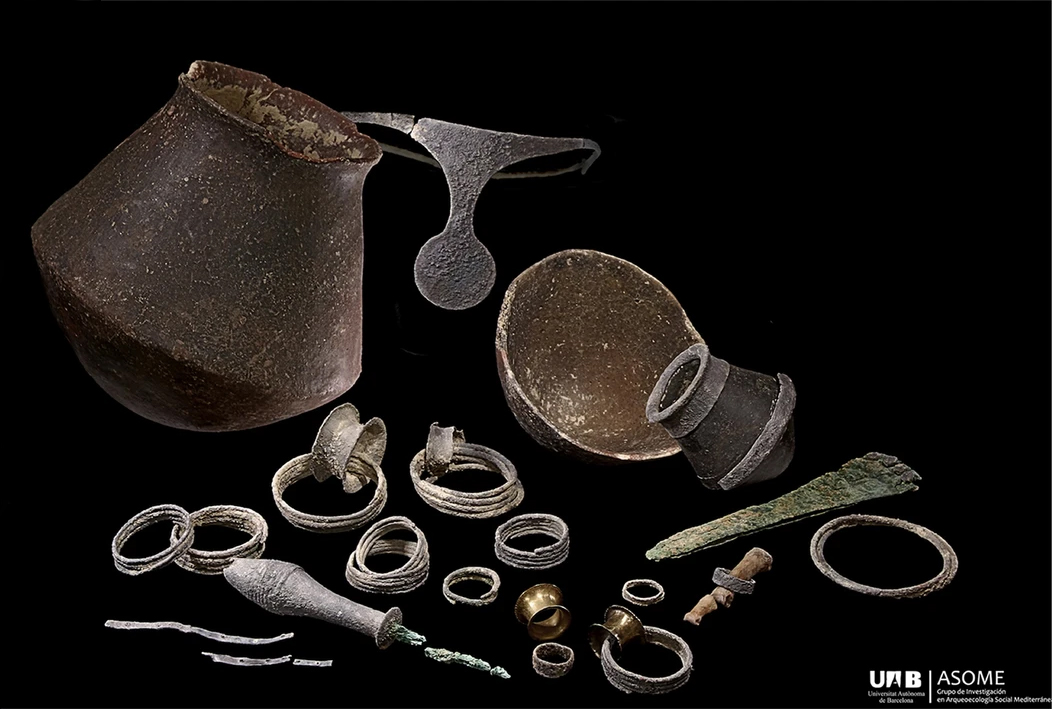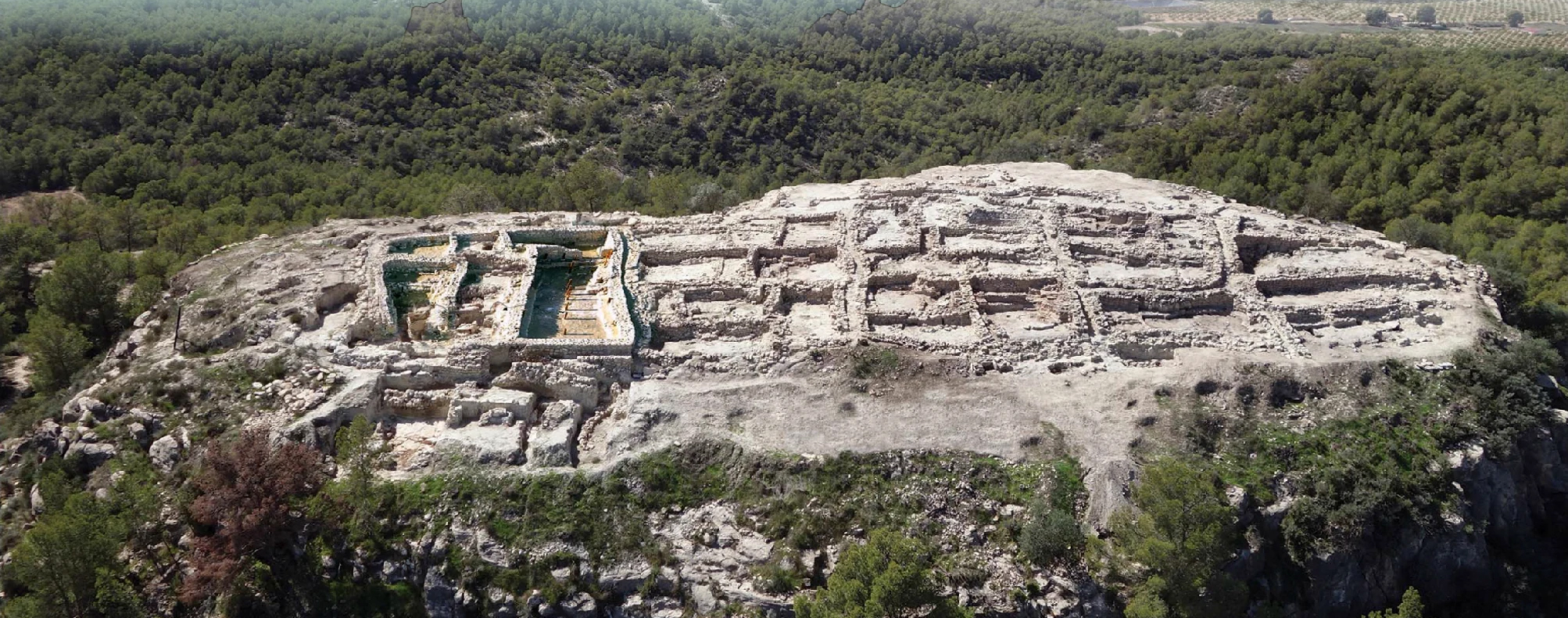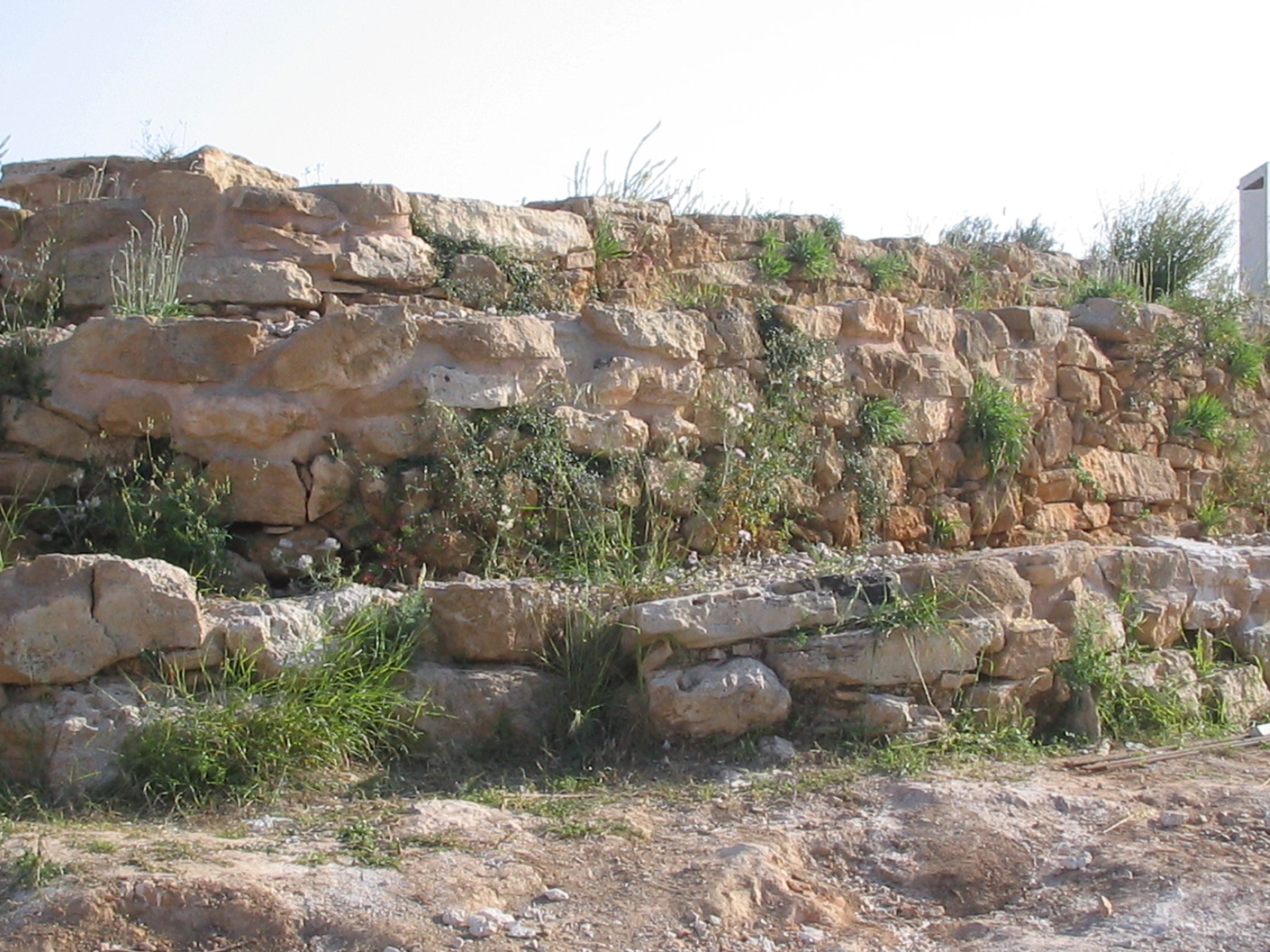Time Periods
Paleolithic
Mesolithic
Neolithic
Chalcolithic
Bronze Age
Iron Age
Classical Period
Post-Classical Period
Early Modern Period
Industrial Period
Contemporary Period
Time Periods
Paleolithic
Mesolithic
Neolithic
Chalcolithic
Bronze Age
Iron Age
Classical Period
Post-Classical Period
Early Modern Period
Industrial Period
Contemporary Period
Location
About
La Almoloya is a significant archaeological site located in the southeast of the Iberian Peninsula, modern-day Spain. It is a key site for understanding the El Argar culture, which dominated the region during the Bronze Age from approximately 2200 BCE to 1500 BCE. The site is particularly noted for the discovery of Grave 38, containing the remains of a man and a woman, with the woman adorned with numerous valuable silver goods, including a diadem. This indicates the potential political and social significance of women in this society. Above the grave, a large hall, possibly one of the earliest Bronze Age palaces in Western Europe, suggests that the site was a center for political gatherings. The site's findings provide valuable insights into the social hierarchy and cultural practices of the El Argar people.
Gallery
Explore photographs of ancient structures, artifacts, and archaeological excavations at La Almoloya


Archaeological Features
Explore the unique architectural and cultural elements found at this historical site
Burial and Funerary Structures
Domestic and Habitation Structures
Historical Timeline
Journey through time and discover key events in this site's archaeological history
Plan Your Visit
Details
- Country
- Spain
- Source
- Wikipedia
More Sites in Spain

Son Ferrer
Bronze Age tomb and necropolis site
Cova Foradà
Explore this archaeological site.
Four Doors cave site, Telde
Explore this archaeological site.
Málaga
Explore this archaeological site.
Clunia
Explore this archaeological site.
Dolmen de Axeitos
Explore this archaeological site.